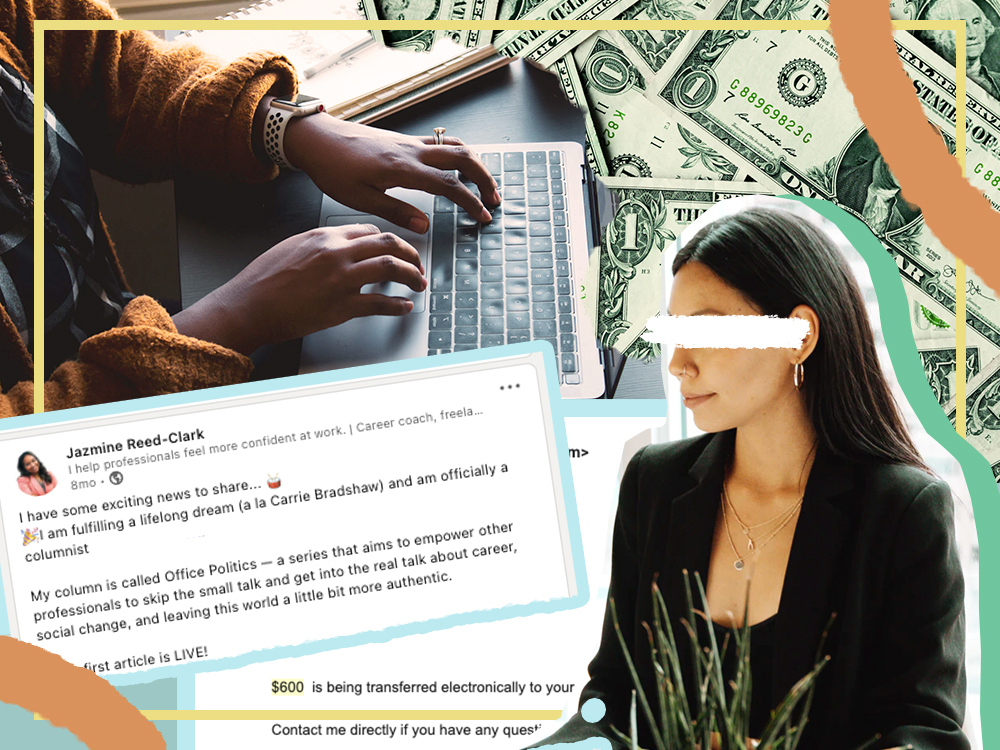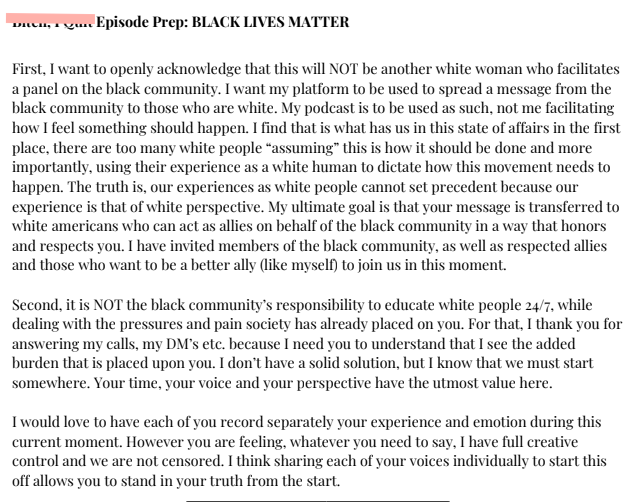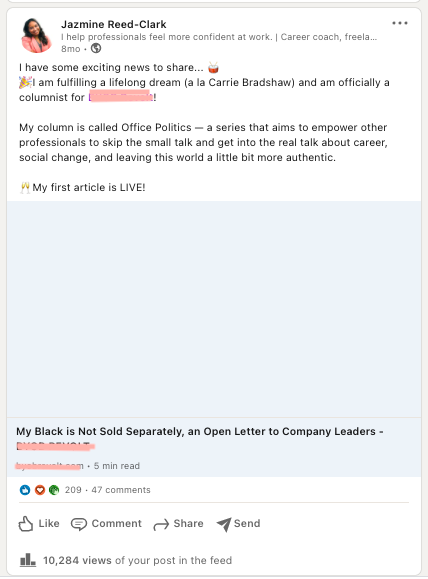How I Got Scammed By A Fake Girlboss

2021 is already proving to be one for the books. In January, it came to light that I, along with half-dozen other young women, were the victims of a money scam that resulted in wage theft, fraudulent activity, embezzlement and being a chess piece for a career criminal whose whereabouts are unknown at the moment.
While I could fill a book with the warning signs I ignored and the lesson I’ve learned, I’ve found the worst part was the trauma and emotional turmoil that comes with being scammed. If I tried to explain what it feels like, it would sound like the set-up to a bad joke: So a break-up, a death, and a mental breakdown walk into a bar…
But as I’ve sifted through different thoughts and collected what I feel is salvageable from the experience, it’s been difficult to find stories or studies on the PTSD that comes with being scammed or frauded. If I can’t connect with others’ stories, I felt I should share my own. Because being scammed by a career criminal doesn’t just “suck,” it evokes deep emotions of shame and self-doubt, and I firmly believe it permanently changes parts of you.
The Scam Itself
In June 2020, I began freelancing for a company whose mission was about “being your own boss” and “revolting against the status quo.” Its programs provided “tangible takeaways, goal setting standards with specific metrics for measurement and timelines for proven professional success.” It was like Sofia Amoruso’s #Girlboss brand, but with a greater focus on career wellness. (So, if #Girlboss and Goop had a baby, I guess.) The company and its CEO had all of the vanity mile markers of a successful business:
- A podcast
- A book
- A gorgeous website
- An online community
- A considerable social media following
- Employees
- Partnerships with other well-known brands
I was introduced to the brand via social media and was a genuine follower. The CEO asked the community for Black voices to speak on her podcast in the summer of 2020. I reached out, and we recorded an episode together as part of her #BlackLivesMatter series. Based on our interactions, she seemed generous, forthcoming, and like someone who had a passion for changing the climate for women in business. I believed with every part of me that I had attracted a like-minded leader into my life.
The Girlboss’ “thank you” email when I “joined the community.”

Her announcement on our podcast episode:

The website has since been taken down and all of its social media channels, but I was contracted to write articles for their blog as a career expert. Most of my writing centered around excelling as a woman of color at work and advocating for employee wellness. Soon after launching the column, I was invited to join their podcast network with my own podcast, Office Politics. As with most scams, it felt too good to be true, but in a year like 2020, I chalked it up to overdue good karma and hard work finally paying off. Like any contractor, I filled out paperwork, provided ACH information, and heard an HR department and accounting department’s stories. I began writing pieces I was proud to share, and at the time, I felt like I was working for a boss that wasn’t about the bottom line.
My announcement on Facebook:

Rather quickly, red flags began to appear, and being paid on-time became a burden. And when I was paid, it was never through direct deposit. She would pay me in increments via Venmo or wire transfer. According to her, behind every delay or strange deposit was an emotionally-gripping story involving her health, the loss of a family member, or a technical difficulty caused by my bank. As someone who had just left the corporate world because I felt it lacked empathy, I didn’t want to be the same person I was trying to run away from. So every excuse was met with “No worries,” condolences, and apologies for being one more thing on her plate. There would be another $300 I never saw, but it’s nothing compared to the wage theft of her full-time employees.
“Rather quickly, red flags began to appear, and being paid on-time became a burden.”
As part of my “contract” (air quotes because nearly every legal document were forged; her business wasn’t even registered), I was obligated to tag her company when posting to my podcast’s Instagram account. When I couldn’t tag the handle, I tried going to the Instagram page. When I saw the page was no longer active, I reached out to the CEO via text. It was clear my phone number had been blocked. So I reached out to one of her full-time employees via Instagram. And that’s where the story gets interesting.
Text message exchanges between myself and other victims of her scam:


In total, there is over $40,000 in wage theft among the group of us, five women of color, who she had attracted through her message of equality and corporate feminism. We’re still in the thick of our investigation, but we’ve uncovered that this isn’t the first scam company she’s created. Since working together, we’ve come to discover many sponsorships and partnerships were completely fabricated. She posed as external parties such as clients interested in working with us and was the person behind the screen when we thought we were speaking with someone in HR, accounting, or media production. Each week we’re uncovering new information details that beg us to wonder, what was actually real over the last year?
“In total, there is over $40,000 in wage theft among the group of us, five women of color, who she had attracted through her message of equality and corporate feminism.”
The most unsettling discovery wasn’t just the money stolen, but the psychological labor extracted from us: the trust weaponized, the solidarity exploited, and the way our shared values were mirrored back to us to keep us quiet. Piece by piece, the year unraveled into a mosaic of deception that raised urgent questions about identity fraud, misrepresentation, and the deliberate targeting of marginalized workers. At that point, the work stopped being about recovering a paycheck and started becoming an investigation.
Untangling aliases, tracing digital footprints, and corroborating false partnerships requires distance, method, and expertise—especially when the person responsible has controlled the narrative from the start. This is where experienced investigative support matters: professionals who understand surveillance, background checks, digital forensics, and evidence collection that stands up when emotions are no longer enough. Engaging a private investigator near you isn’t about revenge; it’s about clarity, accountability, and protecting others from being pulled into the same web. As the facts surface and timelines align, the fog lifts, replaced by something steadier than outrage—documentation, corroboration, and a path forward that turns a story of exploitation into one of resolve.
The Stages of Being Scammed
At this point, I bear open wounds instead of healed scars. It wasn’t your everyday Craigslist scam or even akin to being sold a lemon from a sleazy salesperson. This resulted from a scam artist preying on a person’s vulnerabilities and character and deciding to use it against them. It’s been a reckoning of humanity and coming to terms that there are simply diabolical people.
Stage One: Denial
In the beginning, I thought this all to be one astronomical mistake; a woman who got in over her head and made very poor decisions in the process. I couldn’t process, intellectually, that I could live in a reality where a person develops a business strategy based on deceit and poisoning the lives of those they scam. Ignorantly, I put corporate scams into two categories: white-collar crimes where everything was hushed and put in a Swiss bank, and Nigerian prince scams. I suppose, subconsciously, I thought scams primarily happen with the uber-wealthy and their inner circles and the elderly. Never in my wildest imagination did I think some people build full businesses with employees and partnerships around one scam. (I now know it’s far more common than we realize. Most people just don’t talk about it.)
A carousel of thoughts kept churning, “Why go to such lengths, like pretending to have a legitimate business? Just commit wage theft,” “But she put her face on everything; was she really that confident in her scam that she would never get caught?” It made more sense that she didn’t mean to do this and deserves grace and professional help. She put her face on everything; was she really that confident in her scam that she would never get caught?”
I didn’t stay in denial for too long, though; I couldn’t afford to. As we peeled back the layers to the scam, uncovered that contracts and employee documentation had been falsified and that she had been a career criminal since 2010, it became apparent that duping others was always part of the plan. To find young women of color who could buy into her “Let’s go girls” fodder was always part of the plan. For it, all to fall like a house of cards and screw us over to the point of staying silent was always part of the plan.
“She had been a career criminal since 2010 and she put her face on everything; was she really that confident in her scam that she would never get caught?”
Stage Two: Anger
I quickly transitioned into a stage of hysteria and anger. As I pieced together my memory of our interactions, I was able to fill in gaps that had otherwise been gaping and massive. (like, Why is promised equipment always getting lost in the mail? Why is this new sponsor always sick right before we’re supposed to connect on Zoom?) I remember being so angry that I would burst into laughter. And I would laugh until I cried. I finally understood the idiom, “It made my blood boil.” I swear I could feel bubbles burst around my shoulder and back.
As far as anger went, I rode a wrecking ball of fiery energy. My fury was passed between the anger I had for the scam artist and the anger I had for myself. As I traced my steps backward, I picked up every red flag I had chosen to ignore. I was so disgusted that I had let the fantasy of success overrule my logic and common sense. The only vision that can elicit a greater amount of animosity is the thought of the scammer knowing her ruse was working when she lied. I still dig my teeth into my lower lip when I think about it.
“As far as anger went, I rode a wrecking ball of fiery energy. My fury was passed between the anger I had for the scam artist and the anger I had for myself…”
Stage Three: Anxiety With Those Around You
The next stage, to me, has been the most life-altering. Once you experience betrayal and identity fraud at such an intimate level as a manager-employee level, you begin to see all of your relationships through a new lens. It feels like they didn’t just steal your money or your pride; they stole the sense of familiarity and safety you had with all people in your life.
My completely unprofessional psychiatric opinion is that because my scammer went undetected, I now wonder who else has slid past my trenches of protection. Who else was a wolf in sheep’s clothing? I can feel myself putting up stronger defenses against people, including friends and my husband. Carefully, I’ve been examining the state of different relationships and question if the narrative I had looming in the background needs to be rewritten. It’s one of the side effects I have yet to reclaim just yet.
However, it has been advantageous to me as a businessperson. Likely, I was too trusting when it came to my freelancing business. I didn’t have strict terms of service. I put myself in a position to be taken advantage of by people with my cavalier attitude toward late payments or my “not wanting to ask too many questions” when I saw information gaps. Since the scam, I’ve audited my business practices, packed on thick skin, and now understand that I have to treat my business as both something that can bring me joy and something I must protect.
“I thought, ‘Who else was a wolf in sheep’s clothing?’ I could feel myself putting up stronger defenses against people, including friends and my husband.”
Stage Four: Anxiety With Yourself
I was already an anxious person before the scam. I have been diagnosed with anxiety and have been on medication for close to two years; so I am no stranger to self-doubt and rumination. But no matter where my mental space has been, I hadn’t previously waivered with my values, mission, or trusting my intuition.
But knowing that I had been a character in this alternate universe where I clung to her lies had me questioning if who I was and my inner work was to blame in some way. I questioned if I had attracted this into my life or if Karma really was a b*tch, and she was at my door ready to collect. Perhaps the anxiety that I was to blame came from a place of despair, or self-absorption, or both, but I sulked in a bath of self-shame and insecurity until my body was pruned. And then I saged the sh*t out of our duplex.
Thankfully, my partner was there to support me throughout the process, especially during this stage. He, being much more grounded (and as someone who doesn’t buy into anything woo-woo), reassured me that I didn’t have to place meaning where there was none. He affirmed that I can be “a good person” with “strong intuition” and still be the victim of a scam.
“I sulked in a bath of self-shame and insecurity until my body was pruned. And then I saged the sh*t out of our duplex.”
Stage Five: Acceptance
I don’t know if I can say I’m at this stage quite yet. I still have a visceral reaction when fuzzy vignettes replay in my mind. But here is what I have come to accept:
- I didn’t bring this on myself. There are crappy, awful people in this world. And we’re bound to interact with them from time to time.
- Being scammed doesn’t equate to being stupid or even foolish.
- In business, you are your only advocate. If you feel like someone is screwing you over or that something is too good to be true, you have the right to stand up for yourself and dig for the truth.
- Believe actions over words and base decisions on past behavior, not potential. If you see several red flags, it’s time to wave the white one and walk away.
Being scammed hurts financially, mentally, and spiritually. A misconception I had was that the pain subsided once the money was recovered. But loss of funds can prove to be just an aside in the trauma. Fraudulent behavior involves betrayal, deception, and emotional abuse. And too often, its victims are too broken to come forward.
Jazmine Reed-Clark, a career coach, writer, and podcast host of the podcast Office Politics.
(Editor’s Note: names and companies have been censored)




